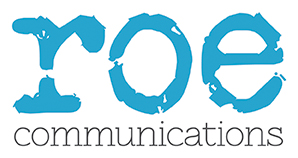Imagine opening your laptop one morning to discover a really great piece of press coverage for your business school.
How do you feel?
- Excited?
- Proud?
- Satisfied?
If, like us, you are motivated by making an impact for your school, probably all three.
And looking good in front of the Dean won’t do your career chances any harm either!
One of the key ingredients to getting press coverage is to develop effective working relationships with journalists.
A tale of two business schools
Consider the example of two different business schools:
Business school A
Business school A works hard to get coverage in the business school’s target media. Every week it issues a press release about something happening at the school. These are emailed to a wide list of journalists with a generic note.
It has had some success with its press coverage, usually this comprises short name mentions across a range of media outlets. But it rarely gets speculative emails from journalists asking for interviews or information.
Business school B
This business school also works hard to get coverage in its target media. The team meets every Monday morning to identify trending topics that week. Press releases are only issued for a specific reason. Significant time is spent reading its target media and tailoring pitches to suit.
This business school achieves more in-depth press coverage, with larger feature pieces and interviews. It often pitches exclusives. The school gets regular requests from journalists for commentary or ideas for stories. Reporters are happy to share what they are writing next and discuss ideas with the school.
Which has the best relationship with the press? Clearly, its example B.
Business schools with the strongest journalist relationships tend to have:
- Regular incoming calls or emails from journalists asking to speak to faculty or other senior spokespeople
- A core of journalists who regularly come back to them as they know they are a good source of information
- Proper interaction with journalists – not just outgoing communication
- High positive responses to their story pitches
- A strong reputation amongst journalists who are happy to refer them to colleagues
- Better press coverage.
How to improve your relationships with the media
Before we start thinking that we can suddenly make all journalists into our new BFFs, let’s take a reality check.
Journalists have a job to do: you can’t expect them to spend hours chatting to you about the weather or the latest football results (although some pleasantries do go a long way!).
But there are ways to build stronger journalist relationships.
There are certain things that reporters need to construct their stories. A news angle is one thing, but images, case studies and quotes are all also essential.
This is where you can make their job much easier.
Start by asking yourself these questions:
1. Do we take advantage of the news agenda?
Media outlets, even specialist ones, are tied to the news agenda. Business schools are in a great position as they have huge amounts of academics and research on a wide range of topics. Some schools structure their week with regular ‘editorial’ meetings, some subscribe to forward-planning software. Ensuring that they are aware of what your spokespeople can comment on will also bring journalists to your door.
Note, however, that you still need to think about your overall focus and themes – talking randomly about a range of topics isn’t going to build your reputation in your strongest areas of expertise.
2. Are we able to respond quickly?
It sounds so simple, but this is vital when dealing with journalists.
Having alumni and student case studies to hand, along with facts and good quality images will make sure that you are regarded as a valuable resource in their eyes.
If you don’t already, make sure that there is a good line of communications between alumni relations and your communications department to share fresh ideas and examples. For more advice on how to make the most of your alumni, check out our blog.
3. Do we know what they cover?
The number one thing that journalists need from a story is relevance to their audience. When you are under pressure to get coverage, it’s easy to fire out the same story to a wide range of journalists, regardless of their ‘beat’. But unless that story matters to their audience, it’s unlikely that they will use it.
Before approaching the press, do a bit of digging. Ask them what they are writing about next, follow their Twitter accounts, read, listen to or watch their latest material. That way, you can tailor your pitches much more effectively.
4. Do we keep an eye on journalist moves?
There’s nothing more frustrating than pitching a story to a previously ‘good’ contact, only to get an automated email telling you that they have moved on.
Keeping on top of journalist moves and hires should be a regular part of your communications programme.
There are huge benefits to this.
By identifying new reporters, you can be the first to establish a relationship as their go-to source of information. And they can act as openers to new outlets where you might not have had a relationship.
5. Do we only offer our strongest stories?
Consistent regular contact with the media is vital. But not at the expense of newsworthiness. Spamming journalists with non-stories or putting out press releases just to keep internal colleagues happy will not endear you to journalists.
Instead, cherry-pick your stories. For every potential opportunity that comes past your desk, consider:
- Is it topical? Does it link to an emerging trend – or one that’s dying out?
- How relevant is it to the journalist’s audience?
- Could you say it was unusual or counterintuitive?
- Why is it relevant now?
- What human stories (or case studies) can we use to illustrate it?
If your business school could benefit from stronger relationships with journalists, we can help with that. Click here for more information.

